5 terrible tragedies that were hushed up by the Soviet media
Categories: Catastrophes
By Pictolic https://pictolic.com/article/5-terrible-tragedies-that-were-hushed-up-by-the-soviet-media.htmlWhoever is in power, the media is always on the hook. Last Sunday, the helpfulness of the media, fed from the federal budget, broke another bottom. In dozens of cities of the country, including Moscow, thousands of people came to rallies against corruption — not a word on the news.
Now we have the Internet, from which nothing can be hidden, but in Soviet times it was like this: if the newspapers did not write, the people did not hear or spirit. Therefore, it often happened that people found out about federal-scale events many years later.
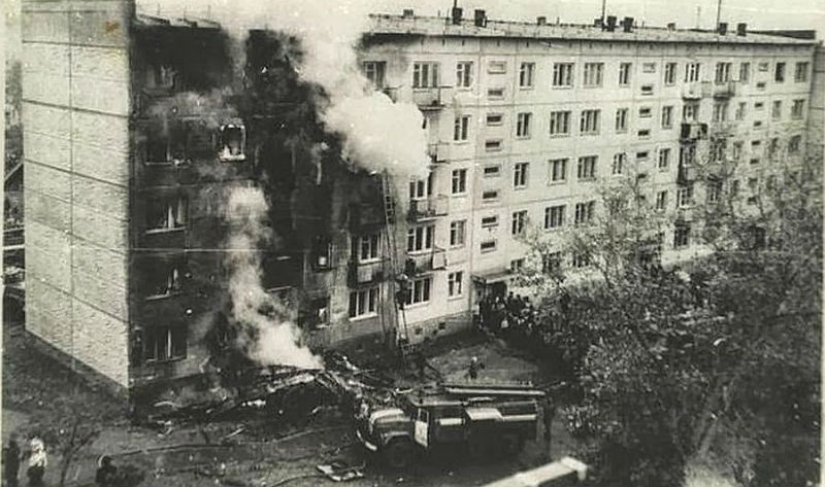
Mass stampede in the "Luzhniki"
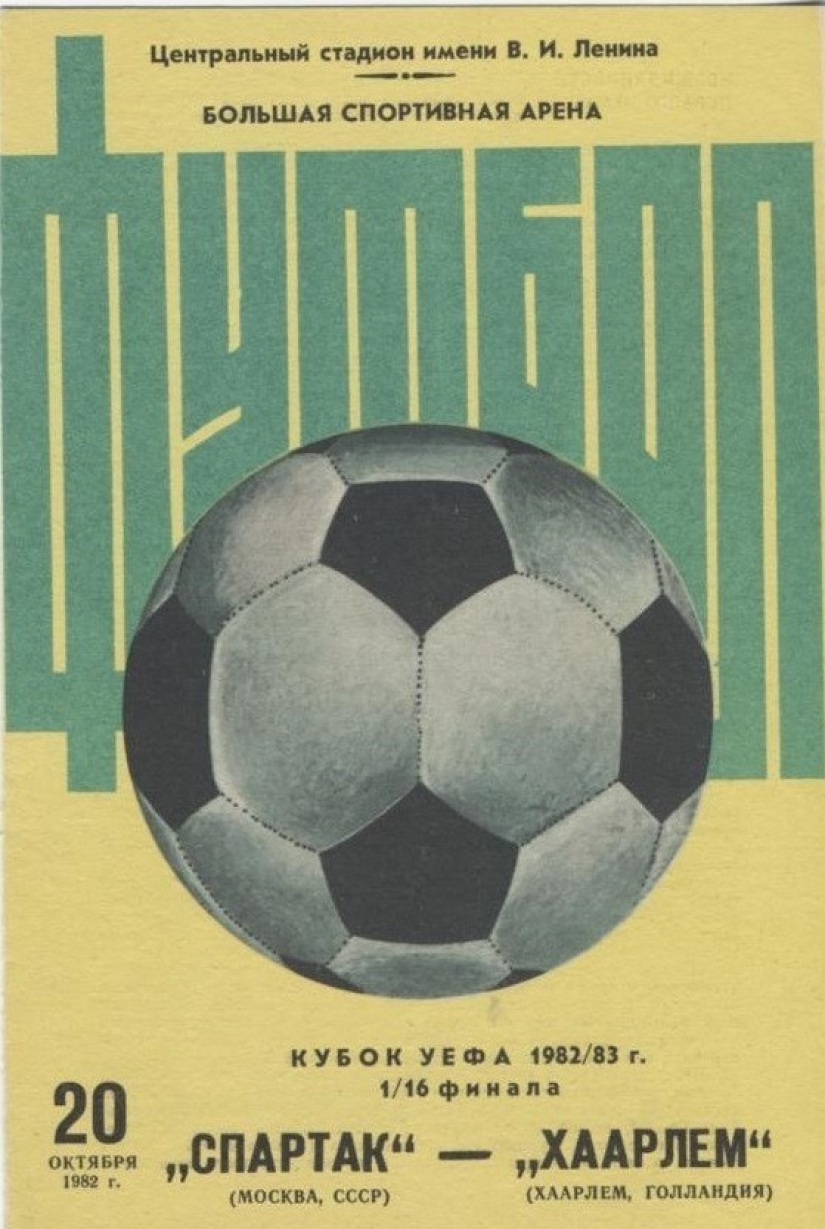
At the end of the football match between Spartak Moscow and Dutch Haarlem in the UEFA Cup, which took place at the Central Lenin Stadium on October 20, 1982, the worst tragedy in the history of Soviet sports broke out. The Spartacists found out about it the next day from the coach, and everyone else - only seven years later.
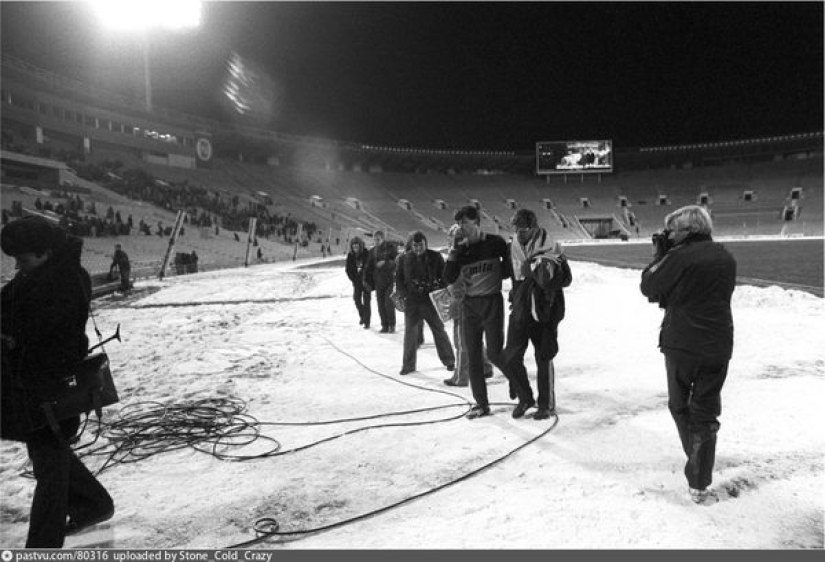
Spartak won 1-0, and a few minutes before the end of the game, the chilled fans were drawn to the exit. According to eyewitnesses, law enforcement officers opened only one gate out of four on the podium C, where almost all the spectators were located. At some point, a girl fell on the stairs, someone stopped to help her, and people were pushing from behind — a stampede began.
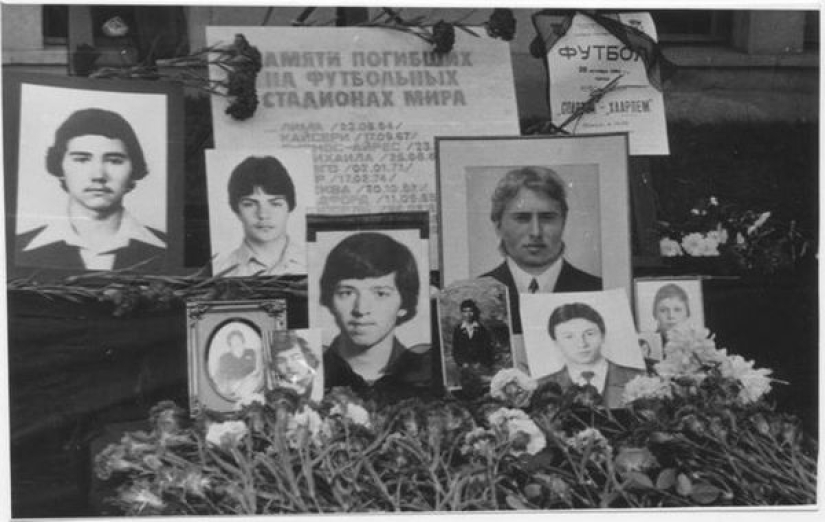
Unfortunately, at this time Sergey Shvetsov scored the second goal. Many moved back to the stands, and the situation took a very terrible turn. As a result, 66 fans died in the crush, most of them teenagers.
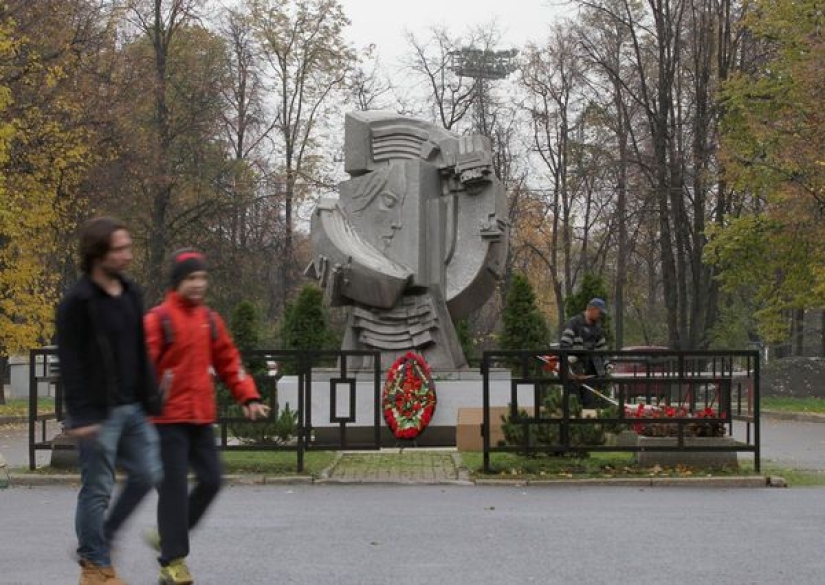
A monument to the victims on the territory of the "Luzhniki", erected for the 10th anniversary of the tragedy.
The newspapers wrote about the match itself, but they didn't say a word about the tragedy. Only "Evening Moscow" on the last page reported in two lines about an "accident", as a result of which "people were injured". The media reported about the crush already under Gorbachev. Relatives of the victims are convinced that there were much more victims than 66.
The collapse of the escalator in the Moscow metro
On February 17 of the same year, at the Aviamotornaya station during rush hour, due to improper maintenance, the handrail of one of the escalators jumped off, and the stairs, accelerating under the weight of passengers, rushed down. Neither the working brake nor the emergency brake worked properly.
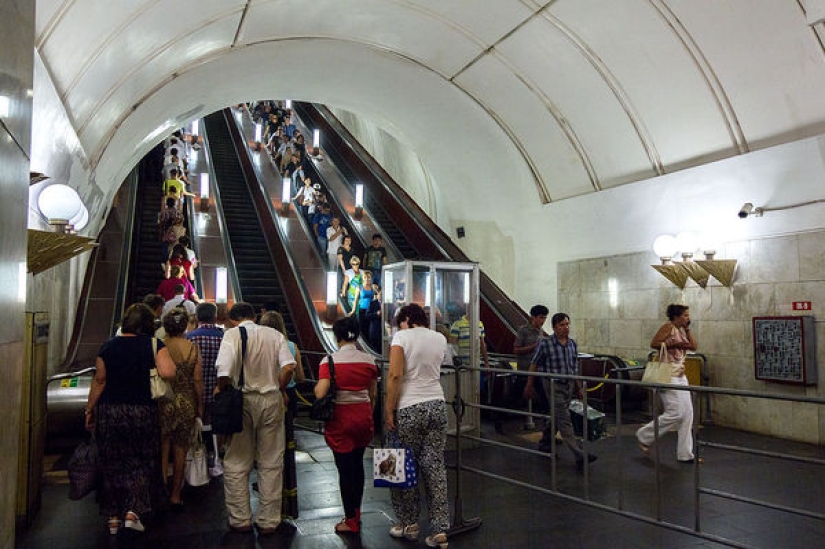
Escalator on "Aviamotornaya" nowadays. The tragedy happened on the escalator on the far right.
Many rushed up the stairs in panic, colliding with those who tried to stand on their feet. People began to fall, a blockage formed below. Someone tried to move to the next escalator, but the plastic coating could not stand and broke. Several people fell under the balustrade. The driving mechanisms were silenced manually only after two minutes.
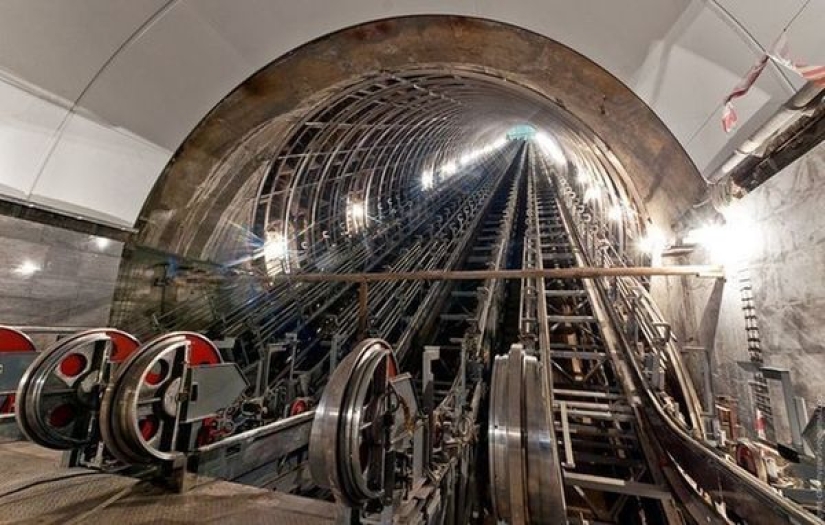
Eight people were killed in the stampede, 30 were seriously injured. A short message the next day was published only by the same "Evening Moscow". It looked like this:
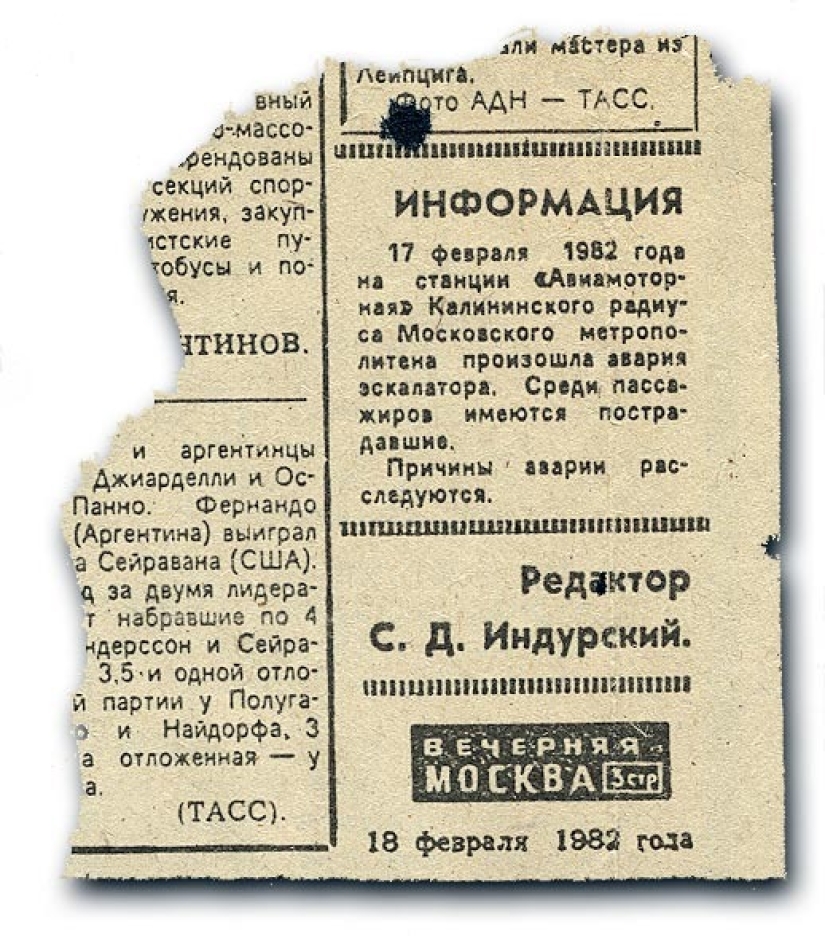
Due to the fact that the tragedy was not covered in the media, it became overgrown with fictional details and turned into a bloody meat grinder, although in fact it was not.
The disaster at Baikonur
In October 1960, a ballistic R-16 exploded at the Baikonur cosmodrome in preparation for a test launch. This happened due to the fact that a frankly unfinished rocket was brought to the site. The Soviet leadership urged the developers in connection with the aggravation of the Cold War, plus, according to tradition, it was necessary to boast of the outstripping pace of work by the anniversary of the October Revolution.
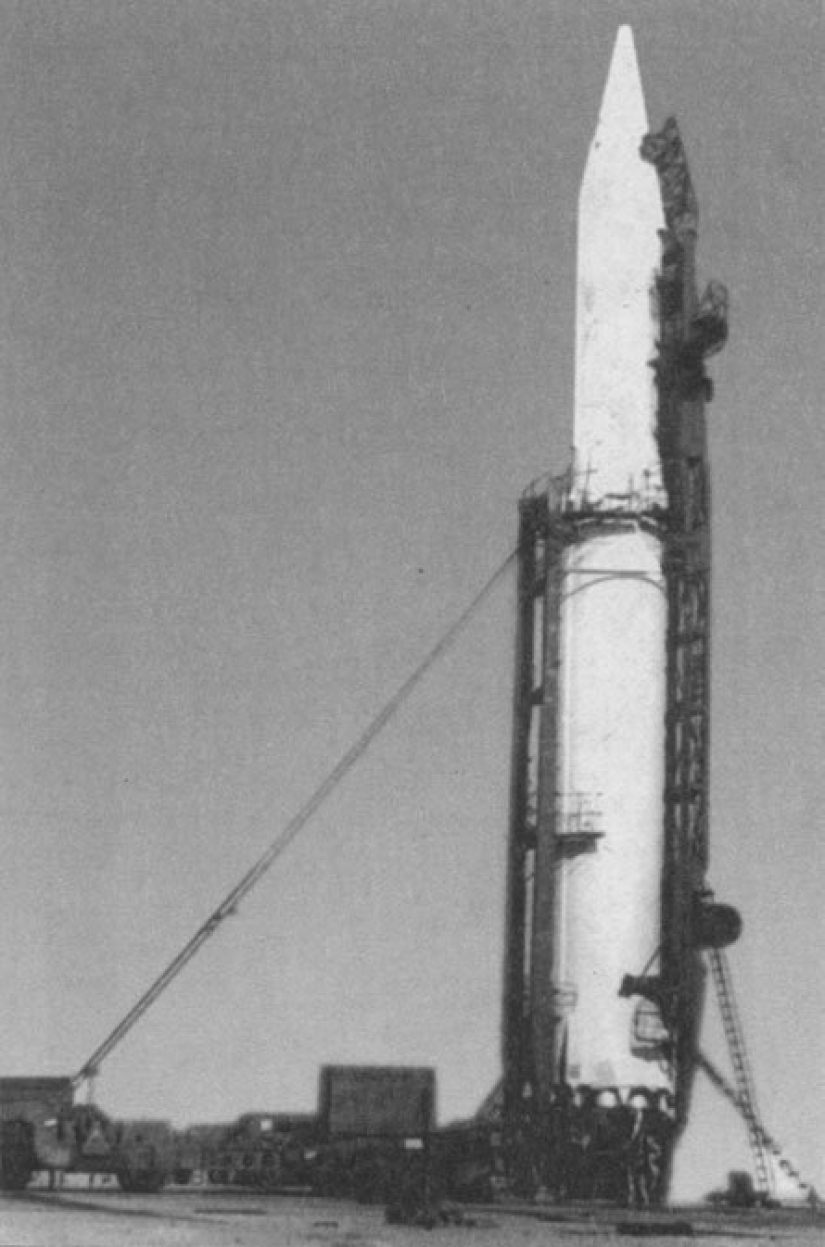
The P-16 is put on the launcher.
The explosion was terrifying. According to various estimates, from 70 to 120 people were burned alive, including the commander-in-chief of the Strategic Missile Forces, Marshal Mitrofan Nedelin, who was sitting in a bunker a few meters from the foot of the rocket.
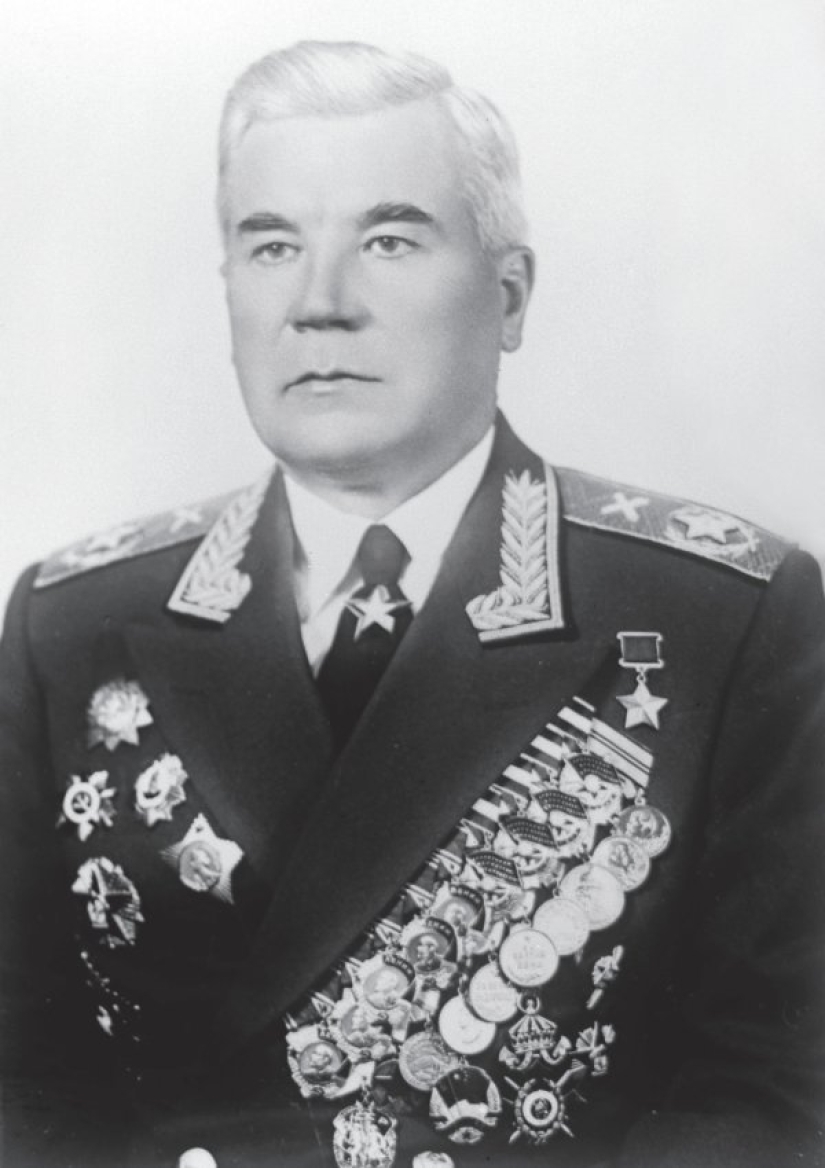
Mitrofan Ivanovich Nedelin.
The movie cameras captured a terrible picture: waves of flame radiated from the rocket in circles, people burning like torches jumped out of the fire and ran in all directions. Some reached the barbed wire fence and hung lifeless on it.
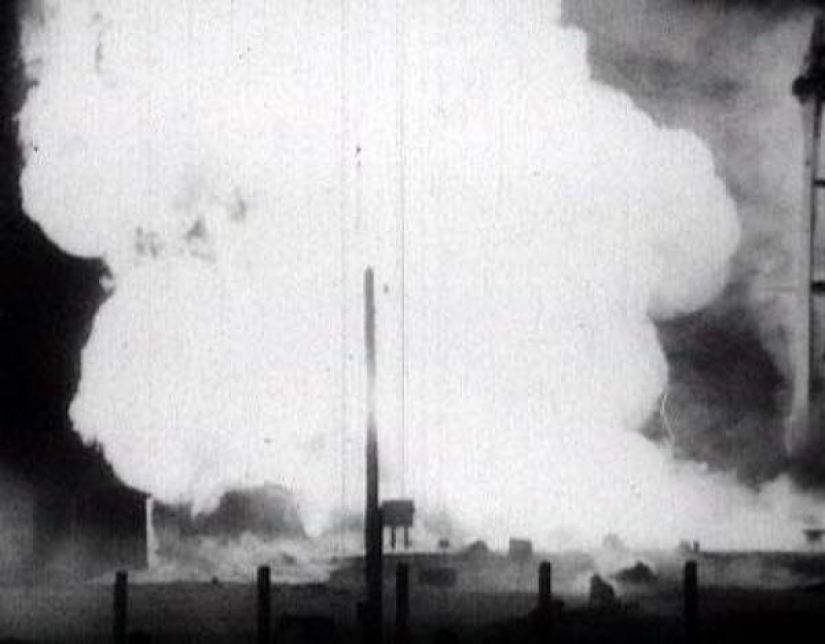
The moment of the explosion.
The data about the tragedy was immediately classified. And in order to somehow explain the death of the commander-in-chief of the Strategic Missile Forces, they invented a certain plane crash in which Nedelin allegedly died. He was buried with honors at the Kremlin Wall, the rest of the victims were secretly buried in cemeteries of different cities and in a mass grave on Baikonur. This case became public knowledge only after the collapse of the Soviet Union.
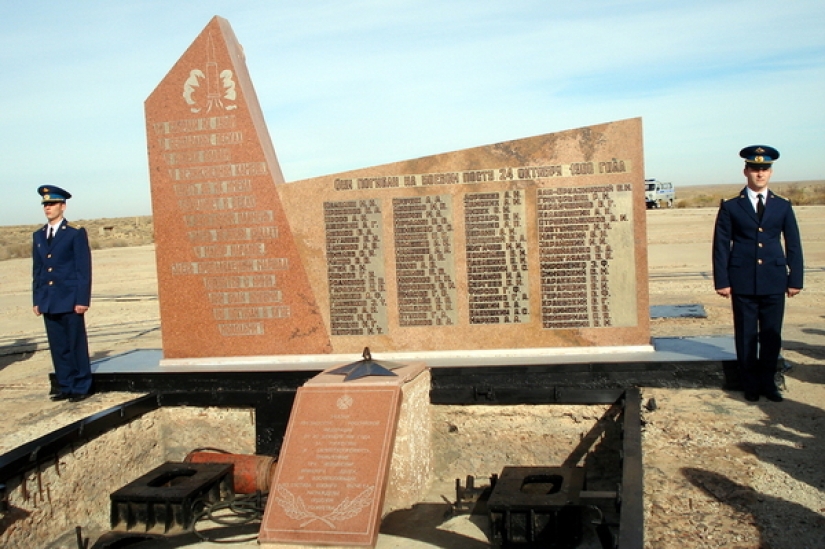
Ram of a residential building in Novosibirsk

In the early morning of September 26, 1976, a 23-year-old civil aviation pilot, Vladimir Serkov, hijacked an An-2 plane from a local airfield, circled over the city at low altitude and suddenly sent it straight to a residential five-story building. As it turned out, the psychopath aimed at the apartment on the third floor, where his wife's parents lived and where she left him, taking her two-year-old son. Fortunately, there was no one in the apartment.
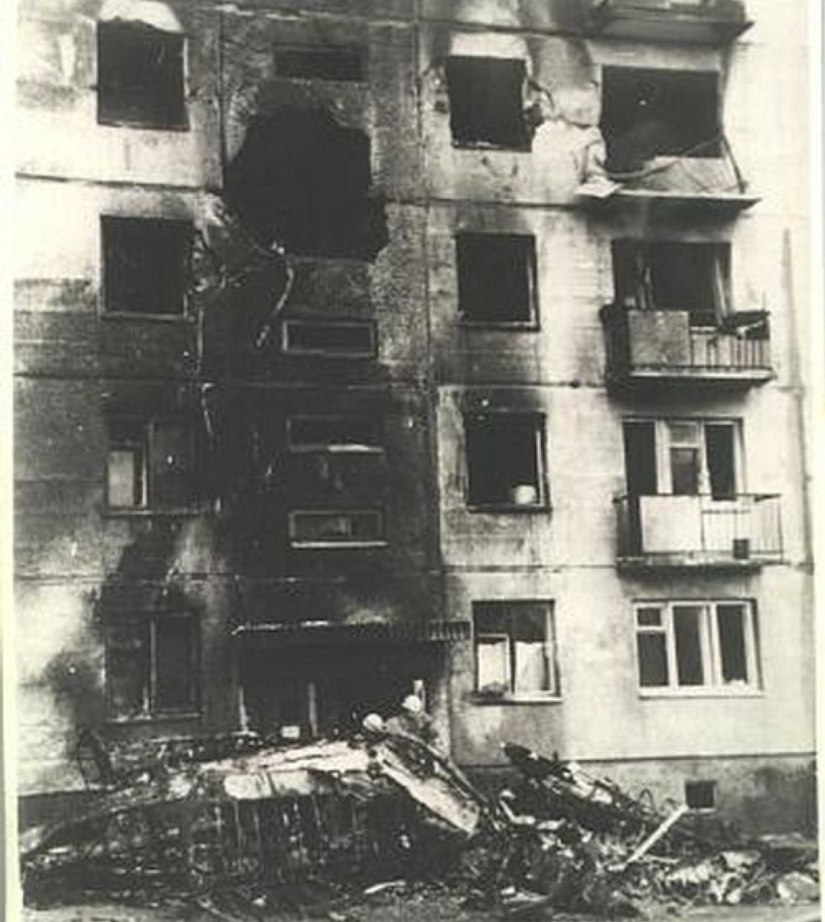
The "cornhusker" crashed into the house at a speed of more than 150 kilometers per hour, punched a hole between the third and fourth floors in the stairwell area, its front part with a screw and a motor flew into one of the apartments. Serkov was killed, but no one else was injured by the blow. A woman and three children died because of the fire.
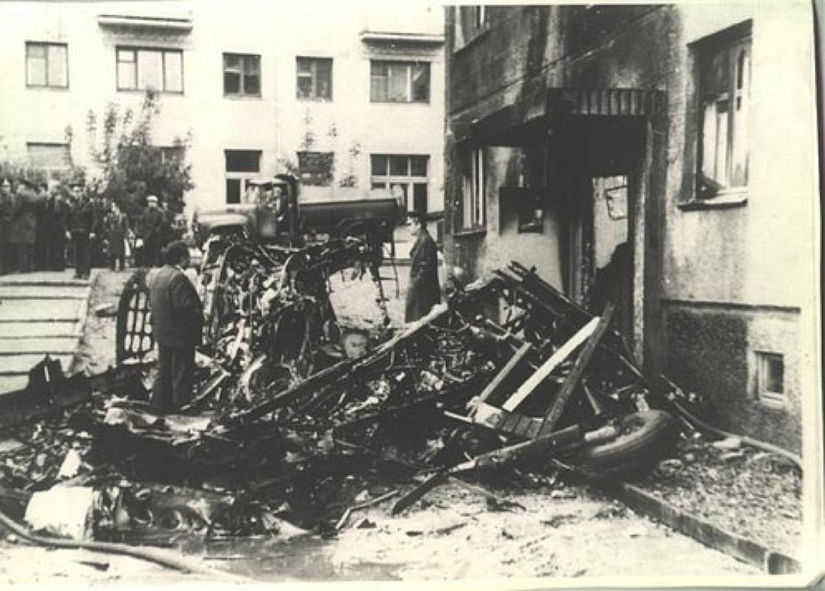
Khrushchev was quickly restored, and the incident itself was classified. It was never officially reported anywhere, instead ominous rumors began to spread around the city — whether it was unprecedented terrorists, or a terrible political action. In the end, this story would have turned into a story, and the eyewitnesses would have been considered crazy, if not for the KGB archives declassified in the early noughties.
The death of cosmonaut Bondarenko
24-year-old Valentin Bondarenko was one of the candidates for the first space flight in the history of mankind. In the detachment of Soviet cosmonauts who were being trained to fly on the Vostok spacecraft, he was the youngest and, according to the results of training, stood fourth in the list.
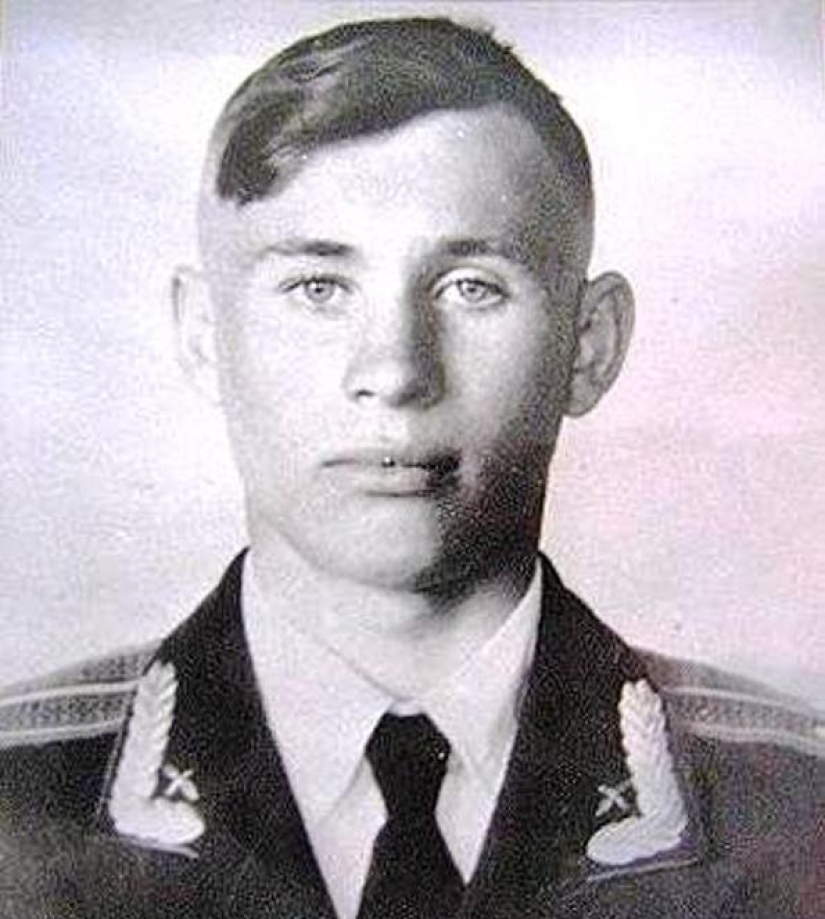
But three weeks before the historic start, Bondarenko tragically died during a test in a sign language chamber. It happened on the 10th day out of 15 that he had to spend all alone in a tightly closed chamber with low pressure and high oxygen levels.
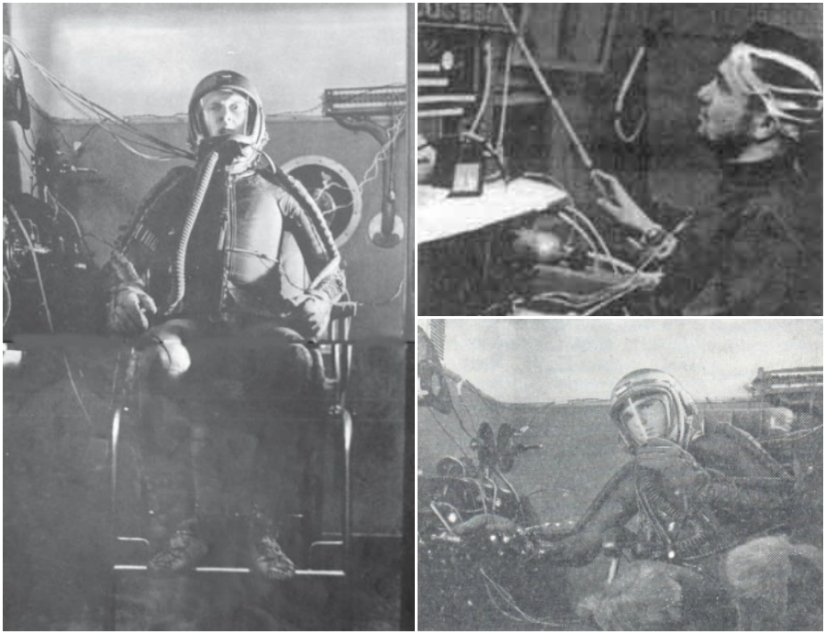
Photos of other test participants.
After one of the medical tests, Bondarenko wiped the attachment points of the bio-sensors on the body with an alcohol swab and accidentally dropped it. Cotton wool fell on a hot spiral tile and burst into flames. The flame instantly spread through the oxygen-saturated room.
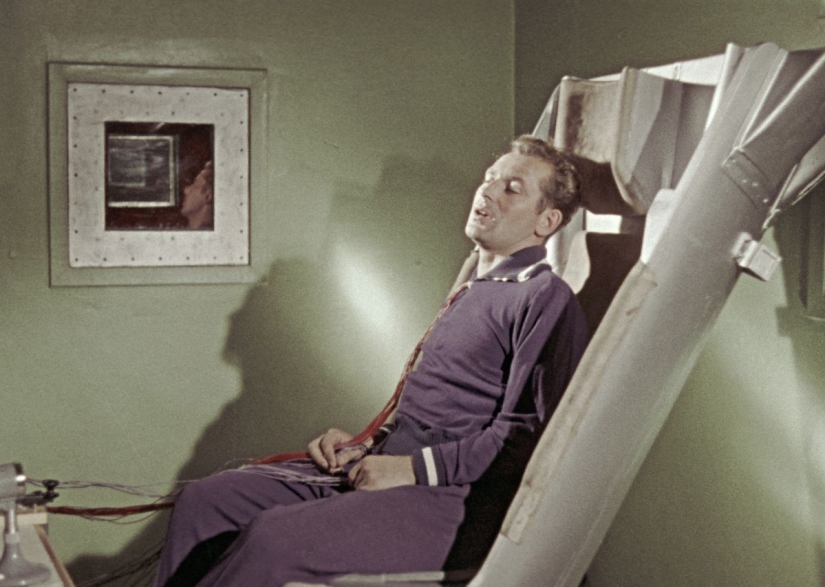
Herman Titov, Gagarin's understudy, during a training session in the sign language chamber.
Due to the large pressure drop, the door could be opened only after half an hour. With burns 80% of Valentine's body was taken to the hospital, where doctors fought for his life for eight hours. According to them, Gagarin was at his friend's bedside all the time until he died.
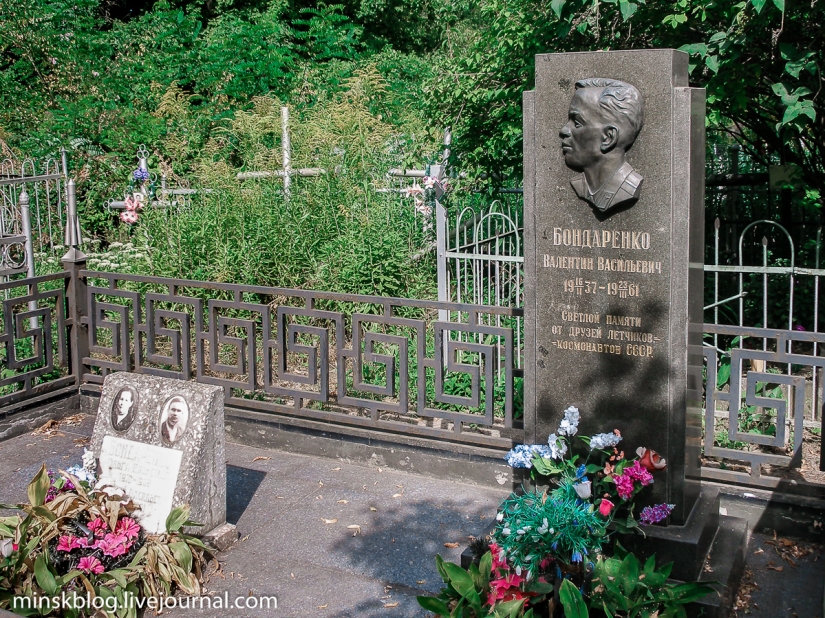
Everything related to space was kept in the strictest secrecy by the state. Bondarenko's death was not just hidden — he was erased from the group pictures of the first squad. The press recognized the death of the cosmonaut only in 1986. Until then, it was written on Bondarenko's grave in Kharkiv: "To the bright memory of friends-pilots." And only then a postscript was added: "...-cosmonauts."
Keywords: Baikonur | Victims | Moscow | Mass media | Tragedies
Post News ArticleRecent articles

It's high time to admit that this whole hipster idea has gone too far. The concept has become so popular that even restaurants have ...

There is a perception that people only use 10% of their brain potential. But the heroes of our review, apparently, found a way to ...
Related articles

Explosions of smartphone batteries and short circuits in sockets no longer become a sensation, but few people know that the danger ...

It is now the so-called Khrushchevki khayut and threaten to level with the ground. And 50 years ago, these squat houses saved the ...

A resident of Russia has a question "And who will do this for you? Pushkin? " does not cause the slightest surprise. Everyone ...

New Year's is a time to surprise and delight loved ones not only with gifts but also with a unique presentation of the holiday ...